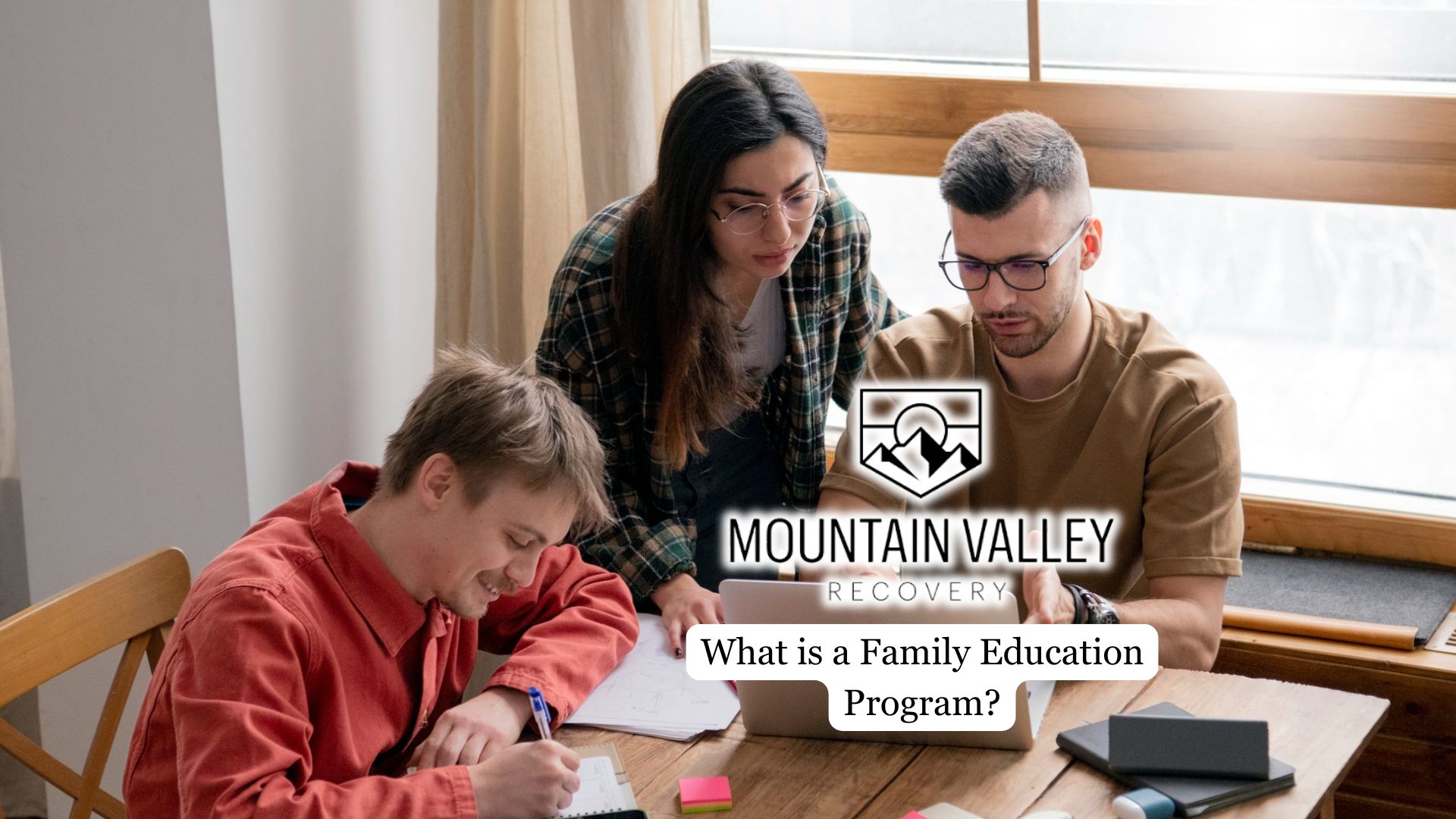There is a growing recognition of the crucial role that families play in the recovery process. This is where family education programs come into focus, offering a vital component in comprehensive addiction treatment.
In this article, we will explore the components of family education programs, their goals, and the profound impact they can have on both the individual in recovery and their family members.
Understanding Family Education Programs
These programs provide families with a comprehensive understanding of addiction, equipping them with the tools needed to effectively support their loved one’s recovery process. By participating in a family education program, you’ll gain insight into the science behind addiction, learning how it affects the brain and behavior.
You’ll also develop essential communication skills, enabling you to have open, honest conversations with your loved one and other family members. Setting healthy boundaries is another crucial element addressed in these programs, as it helps create a supportive environment while preventing codependency and enabling behaviors.
Through a family education program, you’ll gain a deeper appreciation for the challenges your loved one faces and learn how to provide the support they need to maintain long-term recovery.
Through our men’s rehab program at Mountain Valley Recovery, you’ll gain the knowledge, skills, and resources necessary to be a pillar of strength and encouragement throughout your loved one’s recovery journey, contributing to a healthier, more resilient family dynamic.
Goals and Objectives
The primary goal is to educate you about addiction as a chronic disease, helping you develop empathy and understanding for your loved one’s struggles. You’ll learn effective communication skills and coping strategies to reduce conflict and avoid enabling behaviors that may hinder recovery.
These programs will teach you about the stages of recovery and the importance of your involvement, as family support correlates with improved treatment outcomes. By setting healthy boundaries and rebuilding trust, you’ll be better equipped to support your loved one’s journey to sustained sobriety.
Family education also addresses misconceptions and stigma surrounding addiction, empowering you to advocate for your loved one and create a supportive environment conducive to healing.
You can view our guide for family members supporting loved ones on their journey to addiction recovery here.
Common Topics Covered in Family Education Programs
When participating in a Family Education Program, you’ll explore a range of topics designed to enhance your understanding of addiction.
The science of addiction is a crucial subject, as it helps demystify the condition by explaining how addiction is a chronic and relapsing brain disease.
You’ll also learn valuable communication skills, focusing on techniques for active listening and non-judgmental dialogue to foster healthy interactions within your family.
Setting boundaries is another essential topic, as you’ll learn to identify and stop enabling behaviors that can hinder recovery efforts.
Relapse prevention strategies are also a key component of family education programs, teaching you how to recognize triggers and maintain supportive environments conducive to long-term recovery.
Check out these essential tips for dealing with relapse and recovery as a family unit.

Benefits for Families
Family education equips you with a deep understanding of addiction, fostering compassion and empathy for the challenges your loved one faces. You’ll learn effective communication techniques and develop coping skills to navigate the ups and downs of recovery, reducing conflict and enabling behaviors that may hinder progress.
The program provides valuable resources for self-care, helping you prevent burnout and maintain emotional well-being as you support your loved one. By setting realistic expectations and understanding the recovery process, you’ll be better prepared to offer consistent, informed support.
Your involvement in family education correlates with a higher likelihood of sustained recovery for your loved one, highlighting the crucial role you play in creating a supportive environment.
Challenges in Family Education Programs
While family education programs offer numerous benefits, they also face several challenges that can hinder their effectiveness. One significant hurdle is the reluctance to attend among some family members due to feelings of shame or denial surrounding addiction. This reluctance can limit the program’s reach and impact.
Furthermore, resistance to change within family dynamics can make it difficult to implement the healthy boundaries and communication skills taught in these sessions.
Misunderstanding of addiction as a moral failing rather than a medical condition can perpetuate stigma, complicating family involvement in education programs. Families may also struggle to retain and apply complex information about addiction and recovery processes, which can reduce the effectiveness of the educational content.
Moreover, the emotional toll of navigating addiction can lead to burnout among family members, diminishing their capacity to actively participate in family education and support efforts.
Addressing these challenges is crucial to ensure that family education programs can successfully equip participants with the knowledge and skills needed to support their loved ones in addiction recovery.
Final Thoughts from Mountain Valley Recovery
At Mountain Valley Recovery, we recognize the crucial role that family plays in the recovery process, particularly for men undergoing inpatient addiction treatment. Our comprehensive inpatient rehab program acknowledges that recovery goes beyond the individual, encompassing the entire family unit. By incorporating family education into our treatment approach, we strive to foster a robust support system that endures long after our clients depart from our facility.





